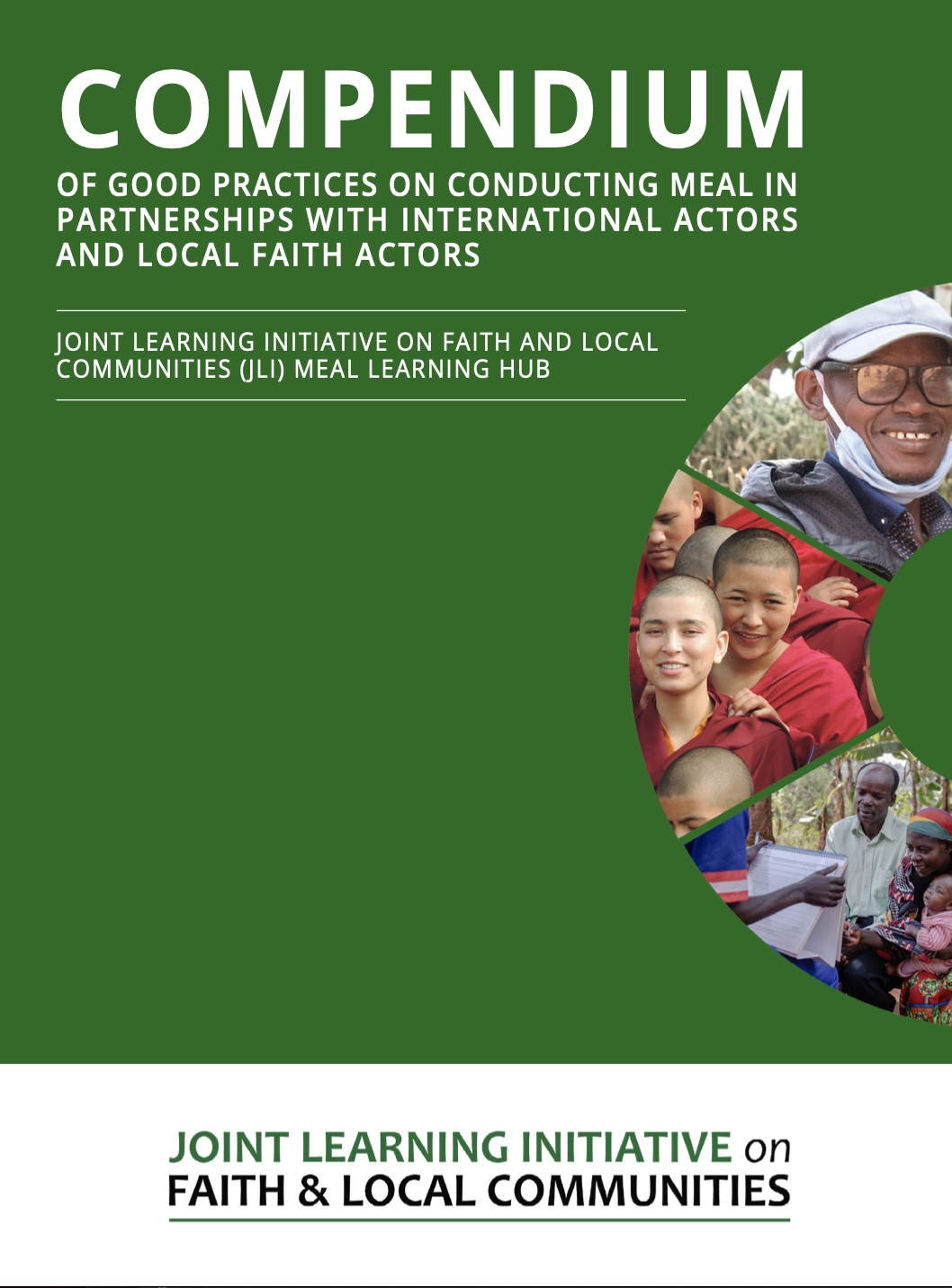2021 | Joint Learning Initiative on Faith and Local Communities MEAL Learning Hub

Faith actors have long been involved in initiatives aimed at improving the wellbeing
and health of communities. While much of the international system continues to be characterised by secular approaches, there is an increasing awareness of the contribution of faith communities to development and humanitarian action, which goes hand in hand with a recognition that international secular approaches are not always suited for engagements with local faith actors. Other areas of faith and development/humanitarian action have received increased attention in recent years; however, we still know relatively little about Monitoring, Evaluation, Accountability and Learning (MEAL), and faith in the sector.
The JLI Monitoring, Evaluation, Accountability and Learning (MEAL) Hub convened in 2019 to better understand how activities related to MEAL are conducted in international- local partnerships where the local partners are from a faith-inspired organization, from any faith. The JLI MEAL Hub focuses on providing a space for learning exchange on current practices in MEAL with and for local faith actors in the development and humanitarian sector.
The inclusion of MEAL can, at times, lead to tensions in local-international partnerships. For example, there is often pressure by donors and international partners to add MEAL to partnerships with local faith actors, even though conventional MEAL activities can at times feel like a burden to local faith actors, who do not always see the value of collecting data in the ways and on the questions that institutional donors and partners expect. Sometimes, local faith actors lack the resources to implement MEAL to the standard expected by international donors, which may disqualify them from applying for funding, despite having long-standing experience and being deeply rooted in the local context.
The JLI MEAL Hub therefore decided to compile an analysis of challenges and good practice examples of local-international partnerships on MEAL in which faith is an aspect. It is the intention that these examples are of use to a broad humanitarian and development audience. The compendium is based on case studies submissions by MEAL Hub members (and beyond) as well as 31 interviews with representatives of secular and faith-based international organisations, local faith actors, and academics. It showcases how 10 organisations working in the development and humanitarian sector in Africa, Asia, the Carribean, the Middle East, and Latin America approach MEAL in their local- international partnerships with a faith element.

1621 North Kent Street, Ste 900,
Arlington, VA, 22209
P 202.534.1400
F 703.276.1433
Website Photos: © mari matsuri
